Introduction
Frying ribs is a beloved culinary technique across global cuisines, prized for its ability to transform tough cuts of meat into tender, caramelized delights. However, one common challenge home cooks and professional chefs alike face is the persistent fishy or gamey odor that can emanate from pork ribs during cooking. This unappetizing aroma, often linked to the meat’s natural proteins and blood residue, can overshadow the dish’s intended flavors. Fortunately, with the right combination of ingredients and techniques, this issue can be effortlessly mitigated. This article delves into the science and art of selecting ingredients that neutralize unwanted odors while elevating the taste profile of fried ribs. From aromatic herbs to acidic marinades, we explore how each component works to create a harmonious balance of flavor and aroma.
The Science Behind Fishy Odors in Meat
Before diving into solutions, it’s crucial to understand why meat develops an off-putting smell. Pork, like many meats, contains compounds such as ammonia, trimethylamine, and sulfur-containing molecules, which are byproducts of protein breakdown and bacterial activity. These compounds become more pronounced when meat is improperly stored, aged, or handled. When heated, these volatile molecules vaporize, creating the unpleasant scent often described as “fishy” or “muddy.” The goal of deodorizing is to neutralize or mask these compounds without compromising the meat’s texture or flavor.
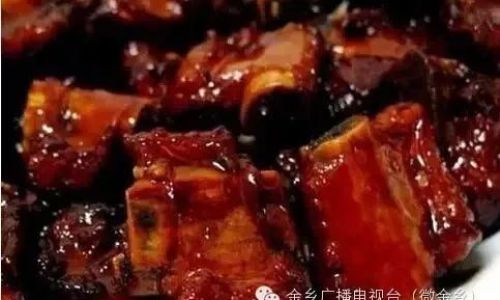
Garlic and Ginger: The Dynamic Duo
Garlic (Allium sativum) and ginger (Zingiber officinale) are cornerstones of Asian and global cuisines, revered for their ability to combat odors while imparting depth. Garlic contains allicin, a sulfur compound with potent antimicrobial properties that neutralize odor-causing bacteria. Ginger, rich in zingiberene and shogaols, not only masks unpleasant smells but also adds a warm, peppery note.
Application: Finely mince or grate both ingredients and rub them into the ribs before frying. For a marinade, combine 2 tablespoons of minced garlic, 1 tablespoon of grated ginger, 1 teaspoon of salt, and 1 tablespoon of oil. Massage this mixture into the meat and let it sit for 30–60 minutes. The enzymes in ginger also help tenderize the ribs, ensuring a melt-in-the-mouth texture.
Cooking Wine: The Alchemical Elixir
Cooking wines, such as Shaoxing rice wine or dry sherry, are indispensable in Chinese stir-fries. Alcohol acts as a solvent, dissolving fat-soluble odor molecules and evaporating them during cooking. Additionally, the amino acids in wine react with meat proteins via the Maillard reaction, creating umami-rich flavors.
Application: Marinate ribs in a mixture of 2 tablespoons of cooking wine, 1 teaspoon of sugar, and 1 teaspoon of cornstarch for 20 minutes. The cornstarch also forms a protective coating, sealing in juices. When frying, deglaze the pan with a splash of wine to capture any residual bits and enhance aroma.
Soy Sauce and Fermented Ingredients
Fermented soybean products, such as soy sauce, tamari, or black bean paste, introduce complex salinity while masking odors. The fermentation process breaks down proteins into free glutamates, which amplify savory notes. Dark soy sauce, with its molasses-like sweetness, also adds caramelized undertones.
Application: Use a light hand to avoid overpowering the dish. A teaspoon of dark soy sauce during marination or a tablespoon added toward the end of frying can deepen flavor without bitterness. For a richer profile, stir-fry ribs with fermented black beans (douchi), which contribute a pungent, earthy aroma.
Vinegar: The Acidic Neutralizer
Acidic ingredients like rice vinegar, apple cider vinegar, or lime juice counteract alkaline compounds in meat, such as ammonia. The low pH of vinegar denatures odor-causing proteins and tightens the meat’s surface, preventing moisture loss.
Application: Create a quick marinade with 1 tablespoon of vinegar, 1 teaspoon of sugar, and a pinch of salt. Let the ribs sit for 15 minutes before patting them dry. Alternatively, add a splash of vinegar during the final moments of frying for a tangy kick.
Aromatic Spices: Star Anise, Cinnamon, and Cloves
Whole spices like star anise (Illicium verum), cinnamon (Cinnamomum verum), and cloves (Syzygium aromaticum) release essential oils when heated, infusing the dish with sweet, woody fragrances. These spices contain eugenol and anethole, which have antimicrobial properties and bind to odor receptors, masking unpleasants.
Application: Toast 1 star anise pod, a 2-inch cinnamon stick, and 3–4 cloves in a dry pan until fragrant. Crush them lightly and add to the marinade or fry them with the ribs. Remove larger spices before serving to avoid overwhelming bites.
Fresh Herbs: Cilantro, Scallions, and Mint
Herbs like cilantro (Coriandrum sativum), scallions (Allium fistulosum), and mint (Mentha spp.) provide a bright, grassy contrast to fatty ribs. Their volatile oils, such as linalool in cilantro and allicin in scallions, chemically interact with odor molecules, altering their perception.
Application: Chop a handful of cilantro or mint and sprinkle over the finished dish. For scallions, use both the white (for sweetness) and green parts (for freshness), adding them during the final minute of frying.
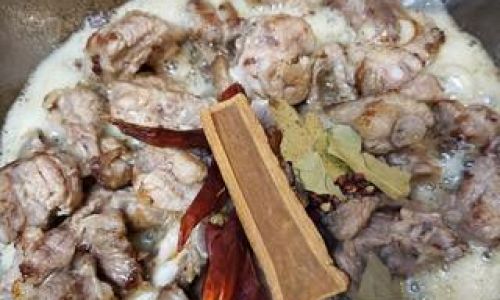
Citrus Zest and Juice: Lemon, Orange, and Yuzu
Citrus fruits contain limonene, a terpene that imparts a zesty, uplifting aroma. The acidity in lemon or lime juice also helps tenderize meat and balance richness.
Application: Zest a lemon or orange over the ribs before frying, or squeeze fresh juice over the finished dish. For a marinade, combine 1 tablespoon of citrus juice with 1 teaspoon of honey and a pinch of salt.
Dairy Products: Yogurt and Buttermilk
Though less common in Asian cooking, dairy-based marinades are popular in Middle Eastern and Indian cuisines for tenderizing and deodorizing meat. Lactic acid in yogurt breaks down proteins, while the fat content carries flavors.
Application: Marinate ribs in 1/4 cup of plain yogurt, 1 teaspoon of turmeric, and 1/2 teaspoon of black pepper for 2–4 hours. Rinse thoroughly before frying to prevent curdling.
Fermented Bean Paste: Doubanjiang or Miso
Fermented bean pastes like doubanjiang (Chinese chili bean paste) or miso (Japanese soybean paste) introduce umami and saltiness while masking odors. The fermentation process generates glutamic acid, which enhances savory notes.
Application: Stir-fry 1 tablespoon of doubanjiang with garlic and ginger before adding the ribs. For miso, dissolve 1 tablespoon in 2 tablespoons of cooking wine and add during the final stages.
Blanching: The Pre-Frying Step
Blanching ribs in boiling water with ginger and cooking wine before frying is a traditional Chinese technique. This process expels blood and impurities, reducing odor.
Application: Bring a pot of water to a boil with 3 slices of ginger and 1 tablespoon of cooking wine. Add the ribs and simmer for 2–3 minutes. Drain and rinse under cold water to halt cooking.
Advanced Techniques for Odor Control
- High-Heat Searing: Cooking ribs over high heat caramelizes the surface quickly, sealing in juices and preventing the release of volatile compounds.
- Deglazing with Aromatics: After searing, deglaze the pan with wine or stock and scrape up browned bits (fond) for added flavor.
- Layering Flavors: Build complexity by adding ingredients in stages—first spices, then aromatics, followed by acids and sweets.
Common Mistakes to Avoid
- Overmarinating: Acidic marinades can toughen meat if left too long. Limit marinating to 4–6 hours.
- Skipping Pat-Drying: Excess moisture prevents browning and intensifies odors. Always pat ribs dry before frying.
- Overcrowding the Pan: Cook in batches to maintain high heat and ensure even searing.
Conclusion
Eliminating fishy odors from fried ribs is a blend of science and intuition. By leveraging ingredients like garlic, ginger, and cooking wine, and techniques such as blanching and high-heat searing, cooks can transform humble ribs into a dish that tantalizes the senses. Experimentation is key—adjust ratios, try new spice combinations, and trust your palate. Whether you prefer the warmth of star anise or the zing of citrus, the perfect fried rib awaits those willing to explore the delicate dance of flavor and aroma. Bon appétit!
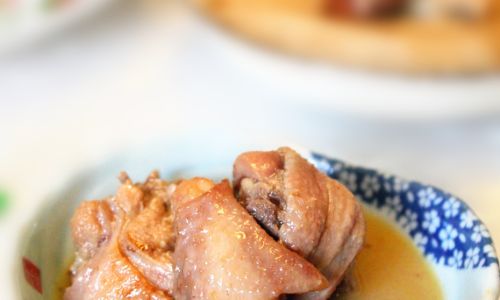
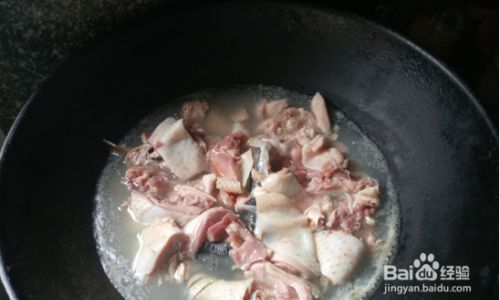
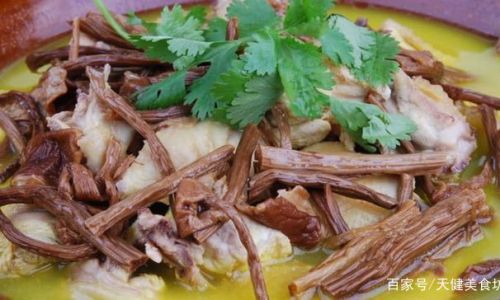



0 comments